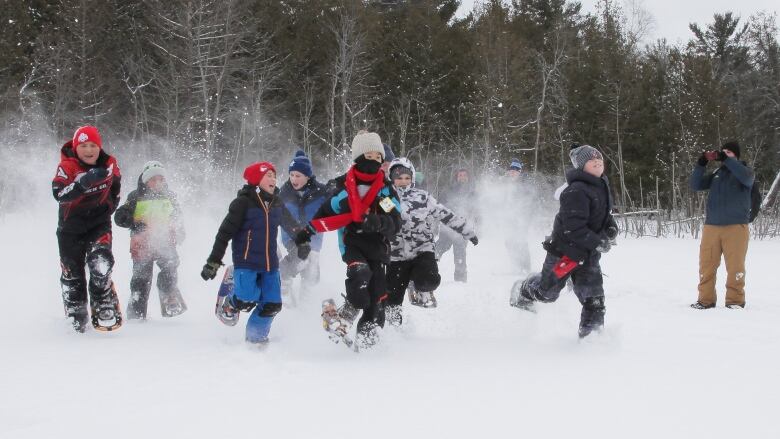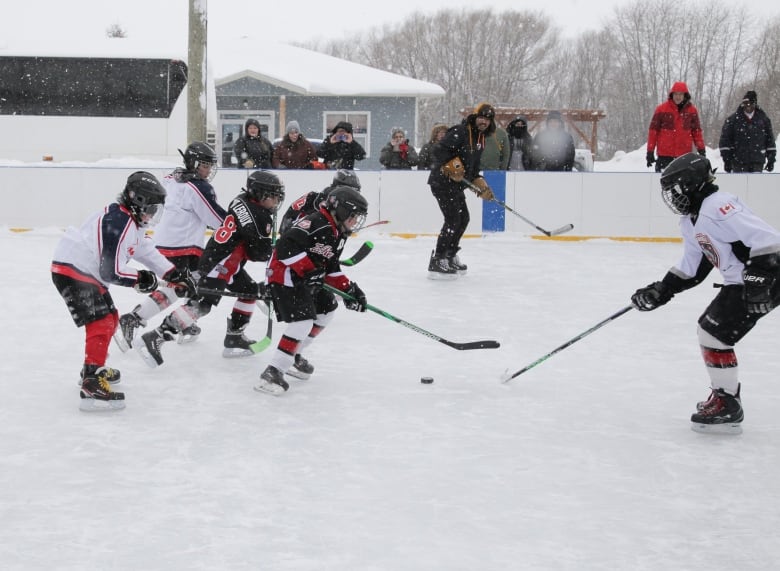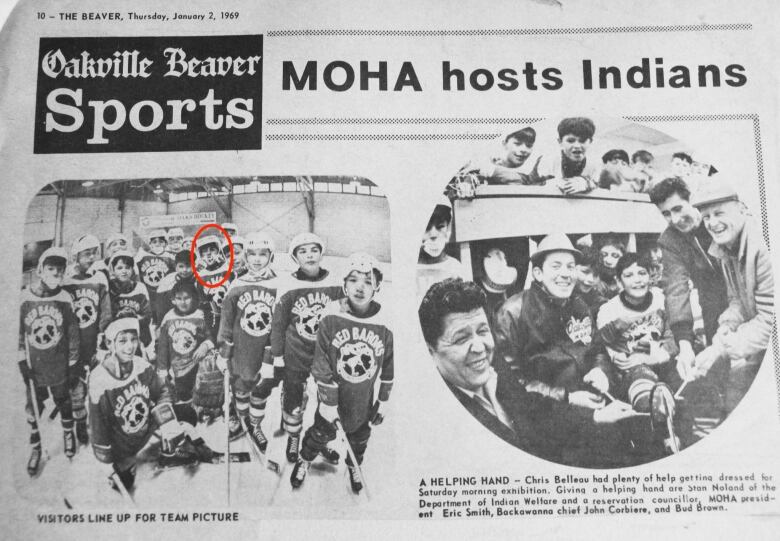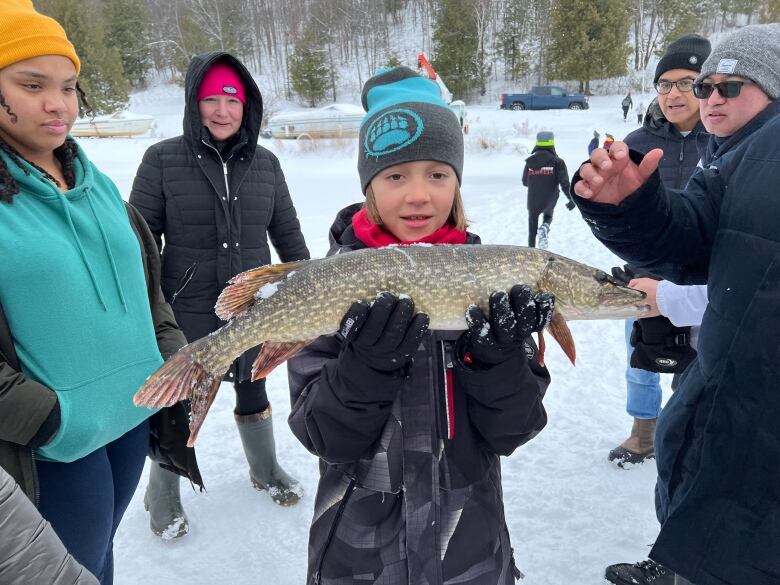Anishinaabe kids share smiles, snowshoeing and culture with visiting Toronto hockey club
Whitefish River First Nation hosts Toronto U-11 team in hockey club exchange

A group of Anishinaabe youth got the chance to show off their home to a youth hockey team visiting from Toronto earlier this month.
The youth in Whitefish River First Nation, about 70 kilometres west of Sudbury, relished the chance to show their new friends what life in Northern Ontario is like.
"Like some kids didn't know how to ice fish or snowshoe," said Brayson McGregor, 11.
The "home-and-home" exchange program between the two hockey clubs wasabout introducing young players to new experiences and making new friends. Organizers also hope it fosters understanding between the two teamsso far apart by location.
The visit Feb. 3-5was the second part of the exchange.InNovember, Whitefish River youthvisited TorontoandBraysonsaidhe still remembers the differences.
"They don't have as much bush as we do," he said.
One youth support worker said the kids from Whitefish River were so excited to see their Toronto friends again they tried remembering their secret handshakes.
Hockey skills camp
TheScarborough Ice Raiders under-11team travelled about 500 kilometresnorth to the First Nation. The community invitedthe visiting team to language lessons, community feasts and snowshoeing.
Both teams also took part in a hockey skills campby the Three Nolans, a hockey program run by former NHL coach Ted Nolan and his two sons.
Ted Nolan said he was in a similar exchange program in the 1960s when his hockey team from Garden River First Nation visited Oakville, Ont..
"They were like us, didn't look down on us;[They]made us feel very comfortable," said Nolan.

His trip included a chance to watch the Maple Leafs practise at Maple LeafGardens. But Nolan's exchange didn't include players from Oakville heading to his home community. Nolan said he would have loved to show off his community, too.

Social activities
The Whitefish River kids were given that chance and took their peers sliding and ice fishing and the community invitedthe two teams to apowwow.
"It was fun going to the powwow social because I seen all the Scarboroughs and my friends doing that dance, and it was pretty cool," said Deacon Jacko, 10.
Steve Whitaker, principal at the school in Whitefish River, said he hopes both groups of children grow from this experience.
He hopes that Indigenous culture doesn't seem so foreign to the non-Indigenous kids and that the community kids leave with a greater sense of who they are.

"This will foster pride in who they are and help to build that sense of identity,"said Whitaker.
He helped organize the exchange program with Mike Purdy, director of Greater Toronto Hockey League.
Purdy said he hopes that withthe success of this pilot program, they can give greater access to sport for other northern communities in the future. He said he hopesthekids make some lasting friendships.
with files from Mark Bochsler












_(720p).jpg)


 OFFICIAL HD MUSIC VIDEO.jpg)
.jpg)



























































































